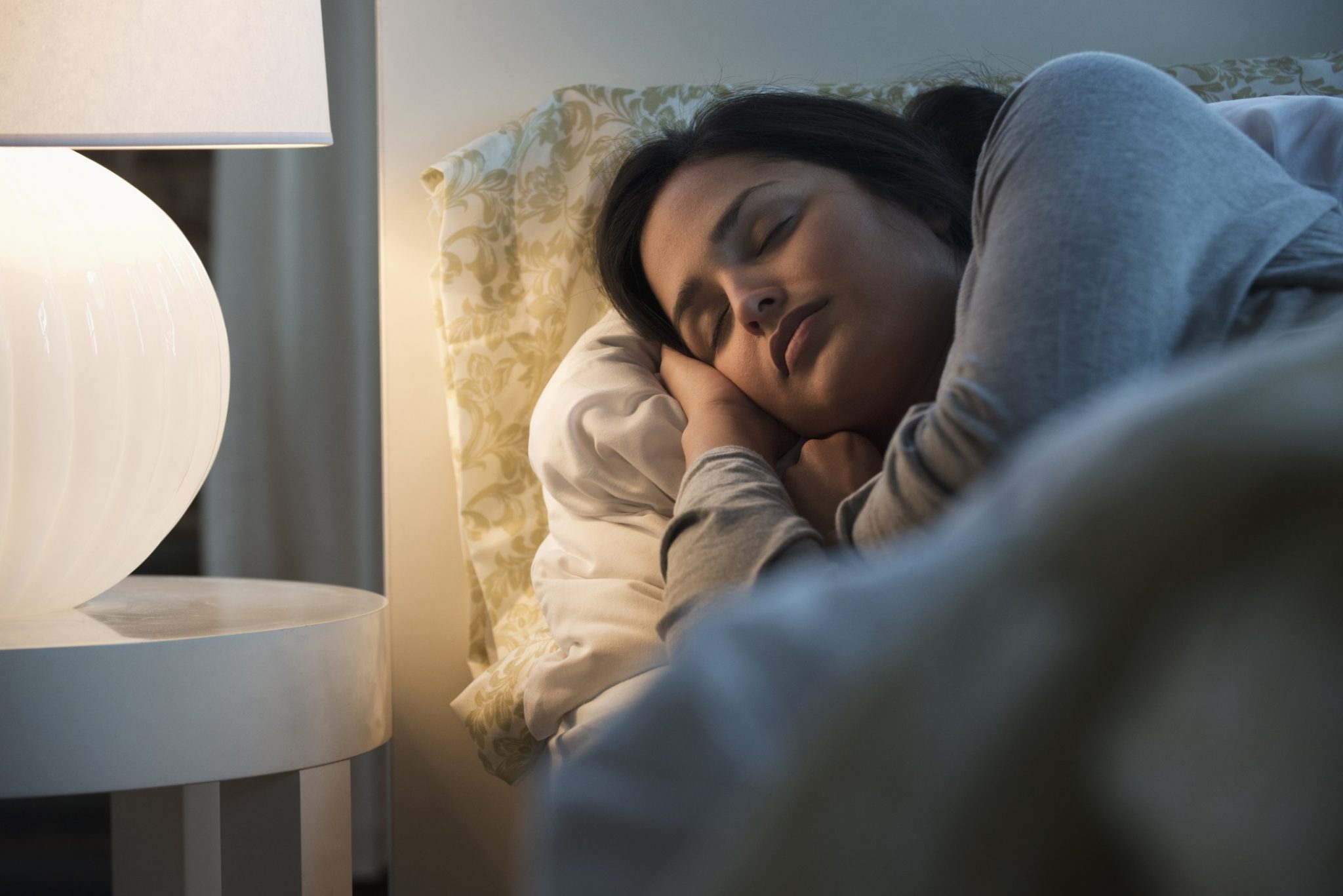Do we need really more sleep in winter?
Does winter really tire you out more than any other season? Here’s the truth about whether we actually should be getting more shuteye, writes Helen Wilson-Beevers.
As winter sets in, it gets even harder to wake up in the morning and leave the cosy comfort of our warm bed. Pressing the snooze button becomes increasingly tempting in an effort to seek out enough shuteye for tackling the day. Meanwhile, as afternoon rolls around and darkness starts to fall, our energy levels often take a nosedive too. Something which is an annual occurrence for many, according to a 2020 US study found that a sizeable 34% of participants reported sleeping more in winter.
While seasonal conditions such as SAD cause increased levels of fatigue and depression during winter, widespread tiredness can also be a sign we’re simply not getting enough sleep. And whether that manifests as irritability, low mood or general lethargy, an energy drop makes our daily routine inevitably feel like we’re trudging through treacle. That tiredness becomes a vicious cycle too, as being depleted might make you want to pull the covers up and avoid doing your usual energy-boosting activities such as exercise.
You may also like
10 proven ways to get a great night's sleep
It often seems like the only way to combat tiredness is to sleep for longer, particularly if you’re not ever fully rested. There’s no doubt winter is a time we’re more tired and drawn to snuggling down, but scientifically speaking, do our bodies need more sleep during the colder months?
Do we need more sleep in the winter?

Lisa Artis, deputy CEO of The Sleep Charity, tells Stylist: “There are a number of reasons why we are more tired and need more sleep as we head into the colder months. These include having less exposure to sunlight during the day.”
Sleep expert James Wilson, aka The Sleep Geek, adds: “When the mornings are darker, we are not being signalled into wakefulness. So it is harder for us to get light during the day (particularly in the morning which is beneficial for our body clock) then we often feel more lethargic.”
As Artis explains: “Low light decreases serotonin, which regulates mood and can disrupt the circadian rhythm (otherwise known as our internal body clock) telling us when we need to be awake and when we need to sleep. Darker evenings also tell the body to produce melatonin (the sleep hormone) earlier so we feel tired and ready for bed.”
It’s normal to need more sleep during winter, and Artis says this should ideally only be another one or two hours to bridge that tiredness gap. “Remember you shouldn’t be sleeping more than 9-10 hours a night,” she adds.
Ways to sleep better during winter
Getting the optimum amount of good quality rest is key for feeling rested, both helping us face the day and minimising tiredness. Here are a few things to try this winter.
Wrap up warm and go for a brisk walk
Putting on enough layers to protect you from the elements and taking a walk, especially first thing in the morning or early afternoon, to get some natural daylight is vital, says Artis. “It will suppress melatonin levels and boost serotonin production, ultimately benefiting sleep.”
Consider light therapy
A light box is used to simulate exposure to sunlight lost during winter, explains Artis. “Sit in front of it for around 30 minutes a day and it can help reduce sleep inertia (morning grogginess) to make you wake feeling more refreshed.”
Wilson says: “If used earlier in the day, and particularly 20 minutes after waking, a light box helps set the body clock and leaves us feeling more energised.” He suggests a sunshine alarm clock too, as this can help the process of waking up because the light initiates cortisol, which is a wake-up hormone.
Embrace a healthy sleep routine
It may sound simple but following good sleep hygiene principles helps with the body’s circadian rhythm. “This helps to strengthen the body’s internal body clock and our ability to sleep,” says Artis, “with key suggestions including keeping regular hours for bedtime and wake time, avoiding screens before bedtime, limiting caffeine and alcohol intake and avoiding clock-watching when trying to sleep.”
Avoid pressing the snooze button
As much as we want to reach for the snooze button each cold and dreary morning, this isn’t ideal. Artis explains: “Your brain knows it’ll go off again, so you won’t get any of the deep, resting slumber in between snoozes.” If you are finding it hard to avoid pressing snooze, try putting it across the room so you have to walk over there, waking you up along the way, she adds.
You may also like
4 sleep myths you need to stop believing right now, according to scientists
The best way to gauge whether you’re getting enough sleep, concludes Artis, is by looking at how you feel the next day. “Everyone wakes feeling a little foggy, drowsy and disoriented, but that feeling generally wears off once you’ve showered, dressed, opened the curtains and had your morning drink and breakfast.”
The main takeaway, she says: “If you still feel very tired by 11am and are needing to fuel yourself with caffeine, then the chances are you’re not getting enough sleep or not enough quality sleep.”
Remember that the next time you’re yawning your way through a mid-morning coffee and wondering why you feel so tired this winter.
Images: Getty
Source: Read Full Article
